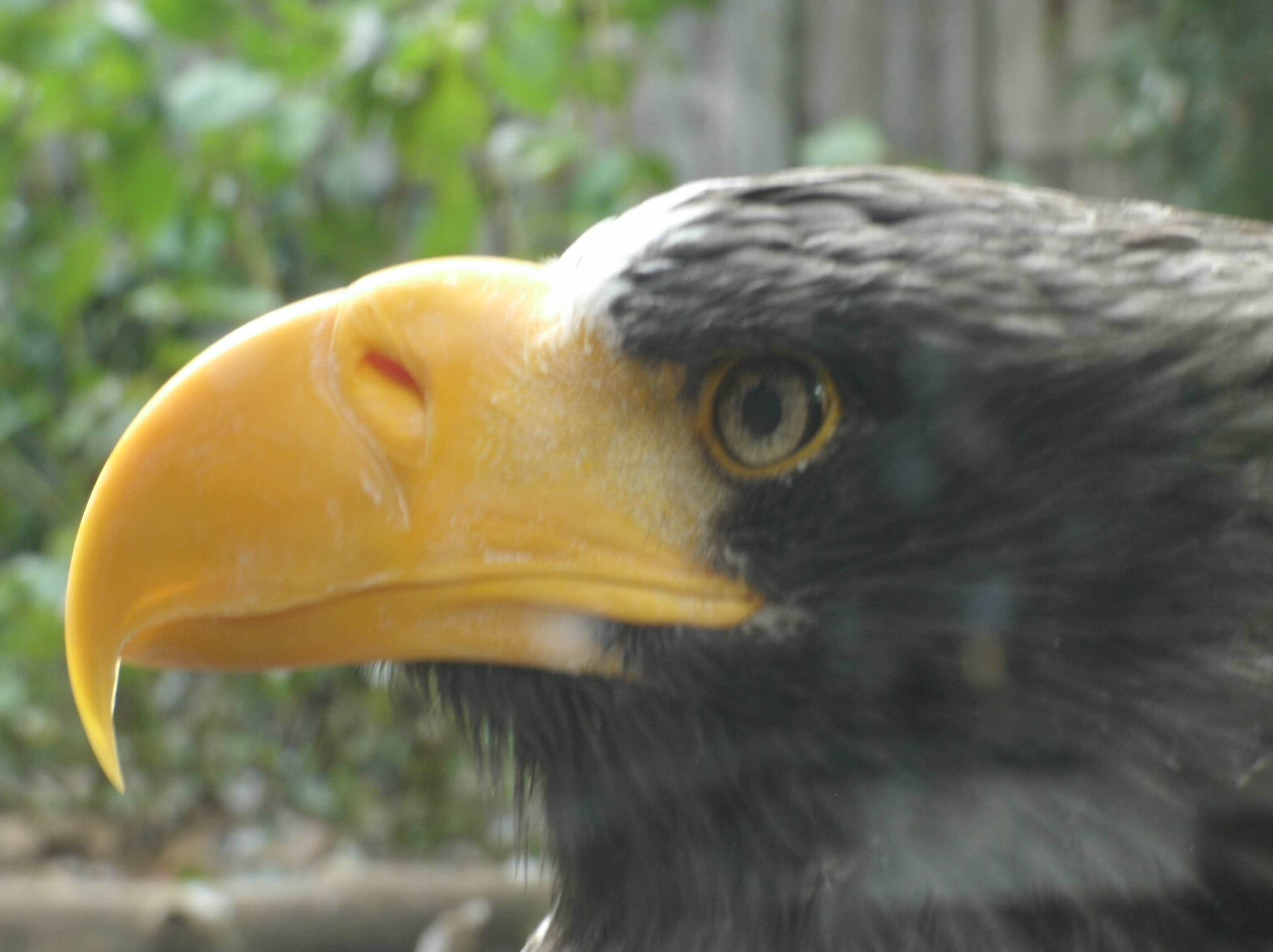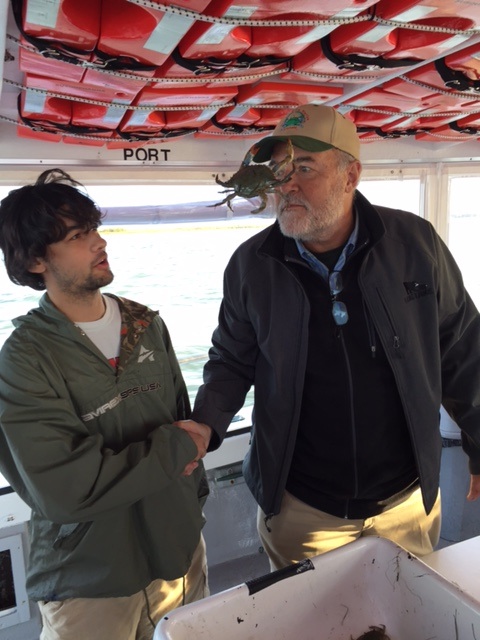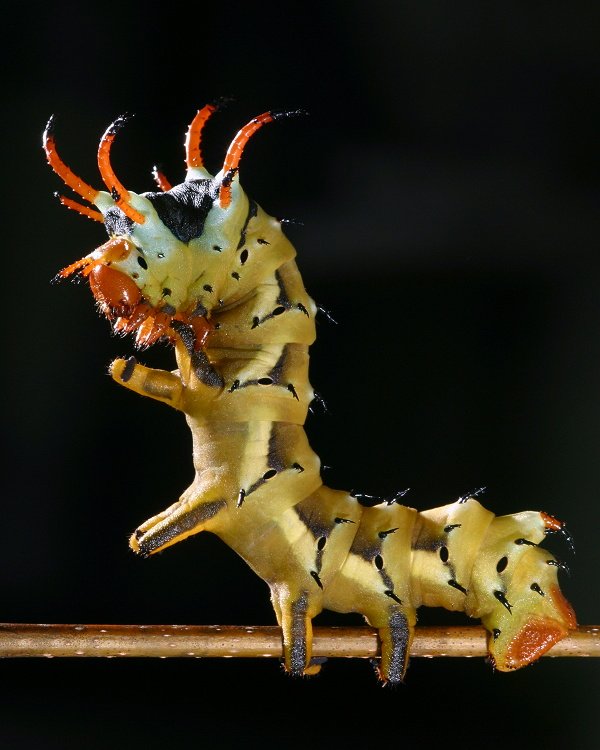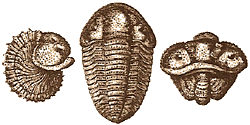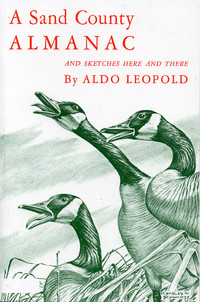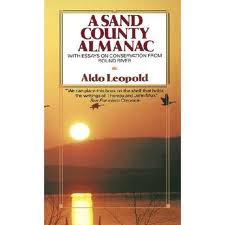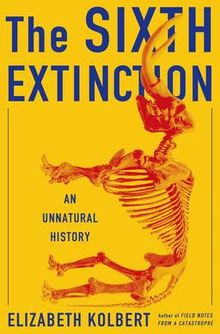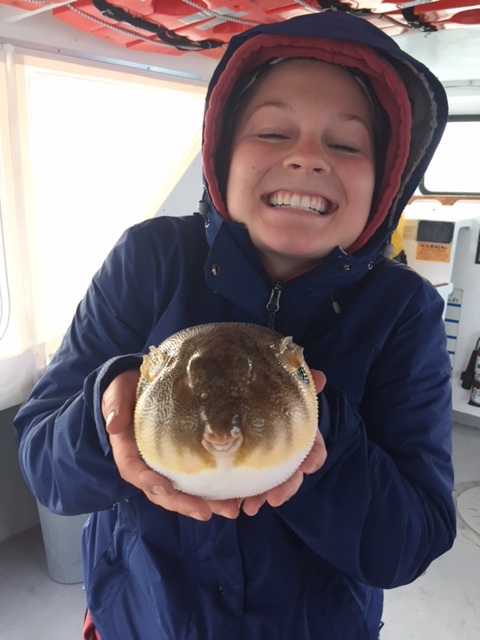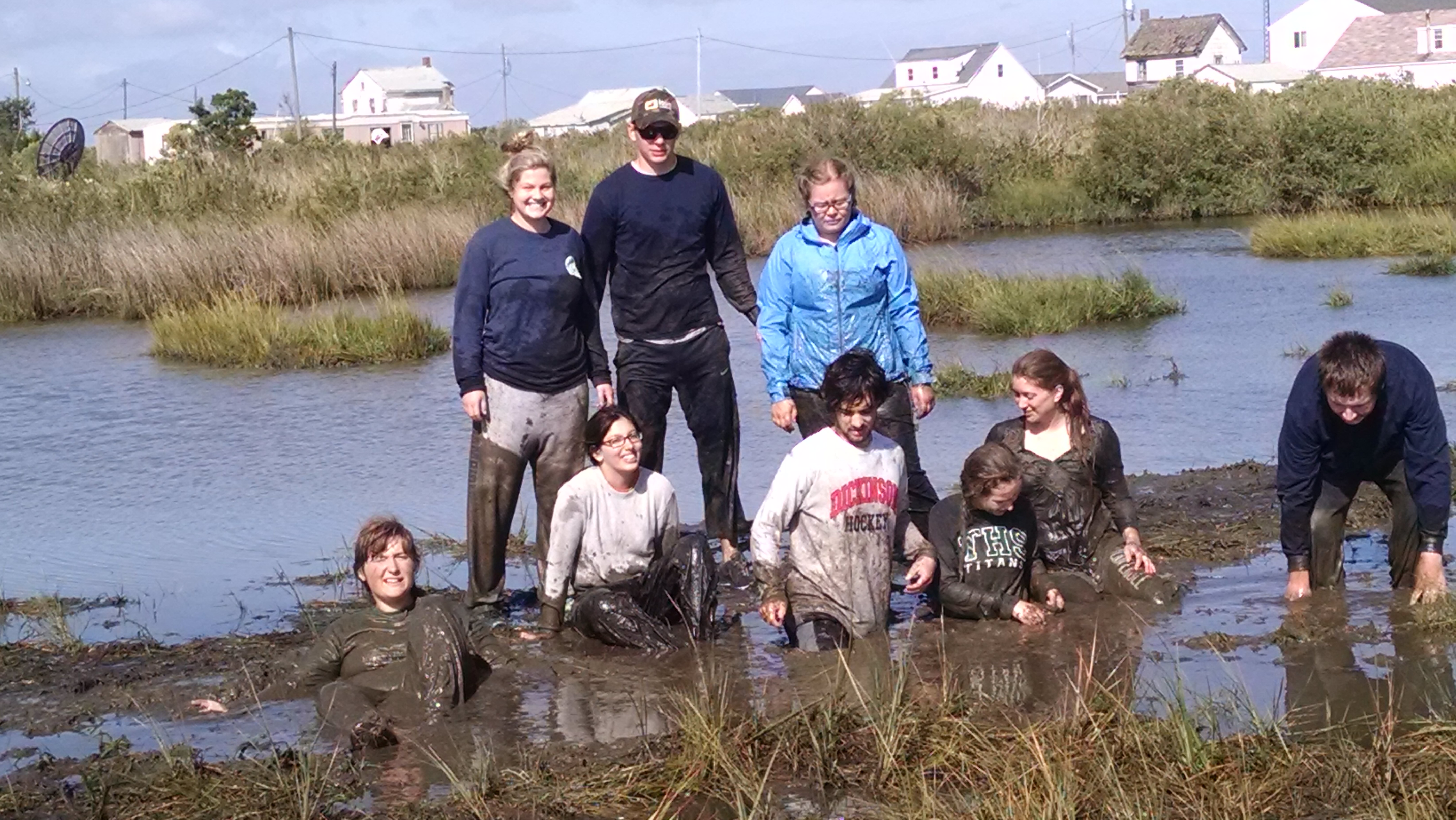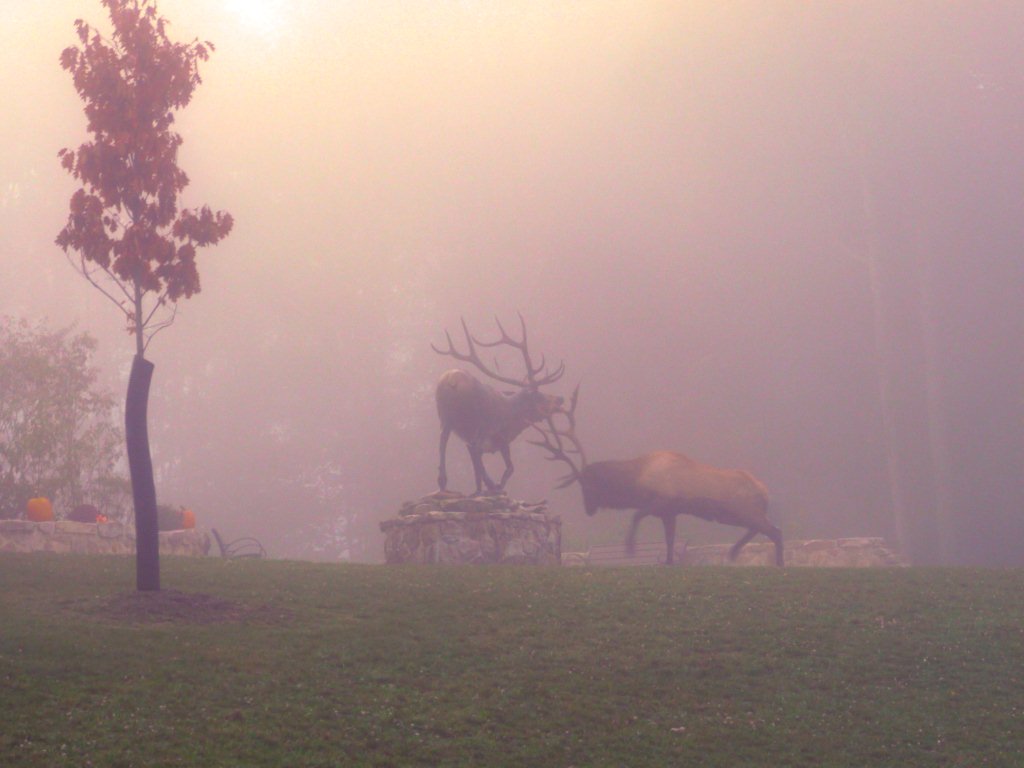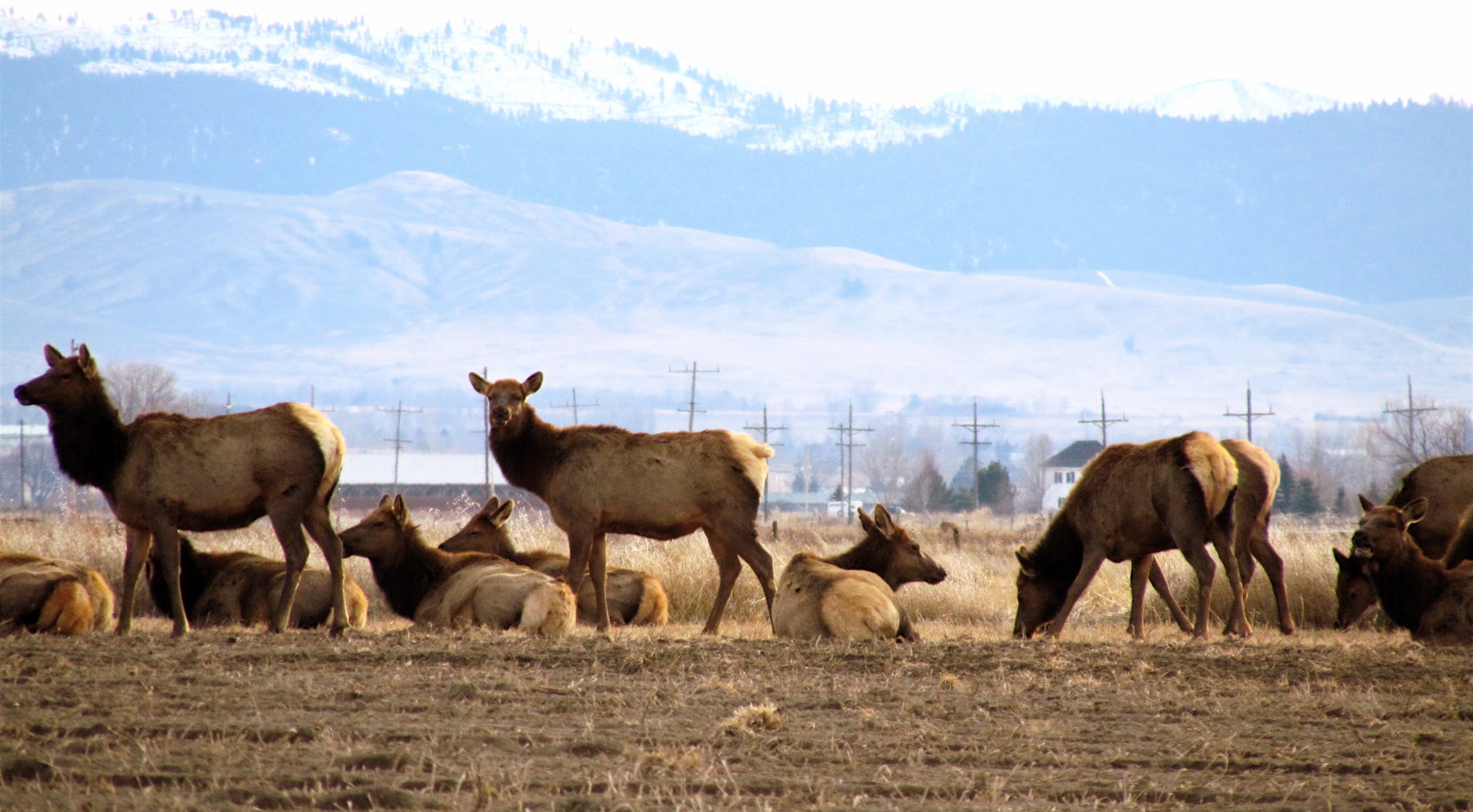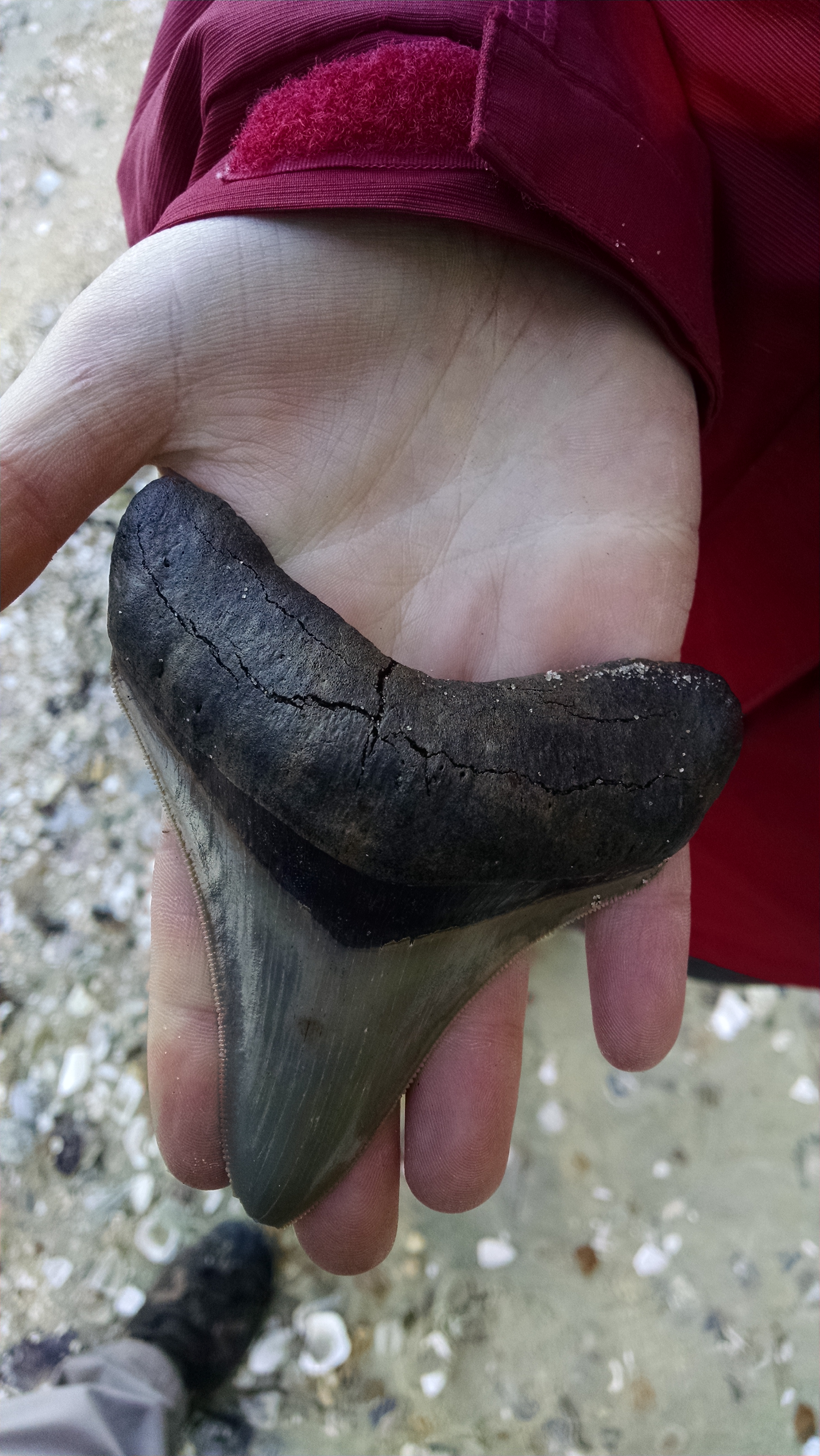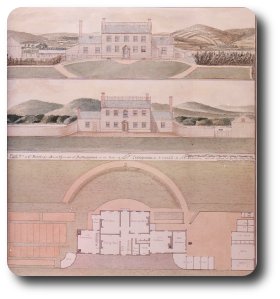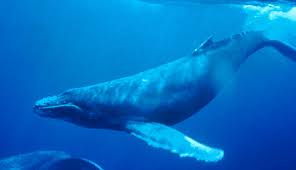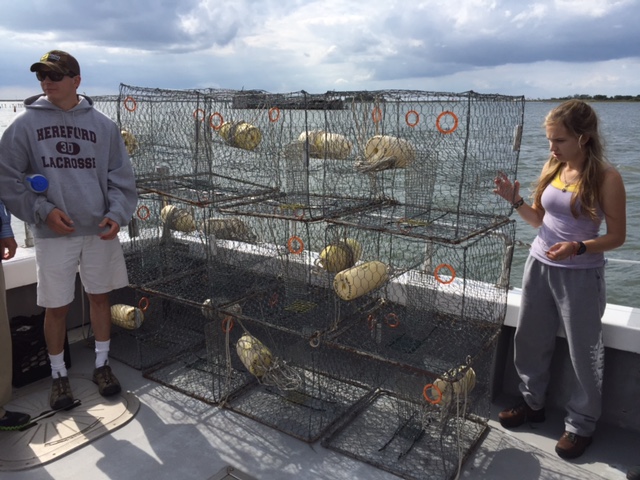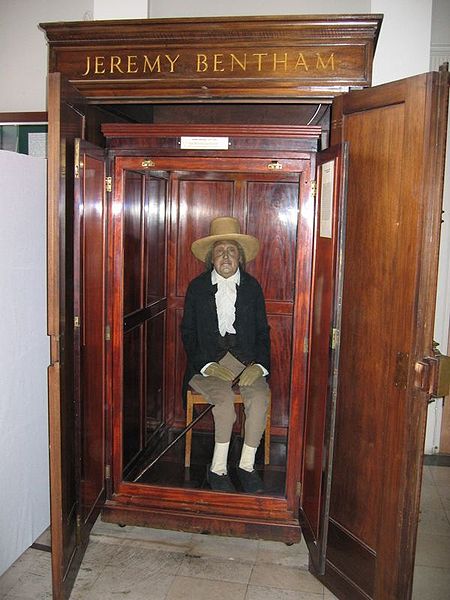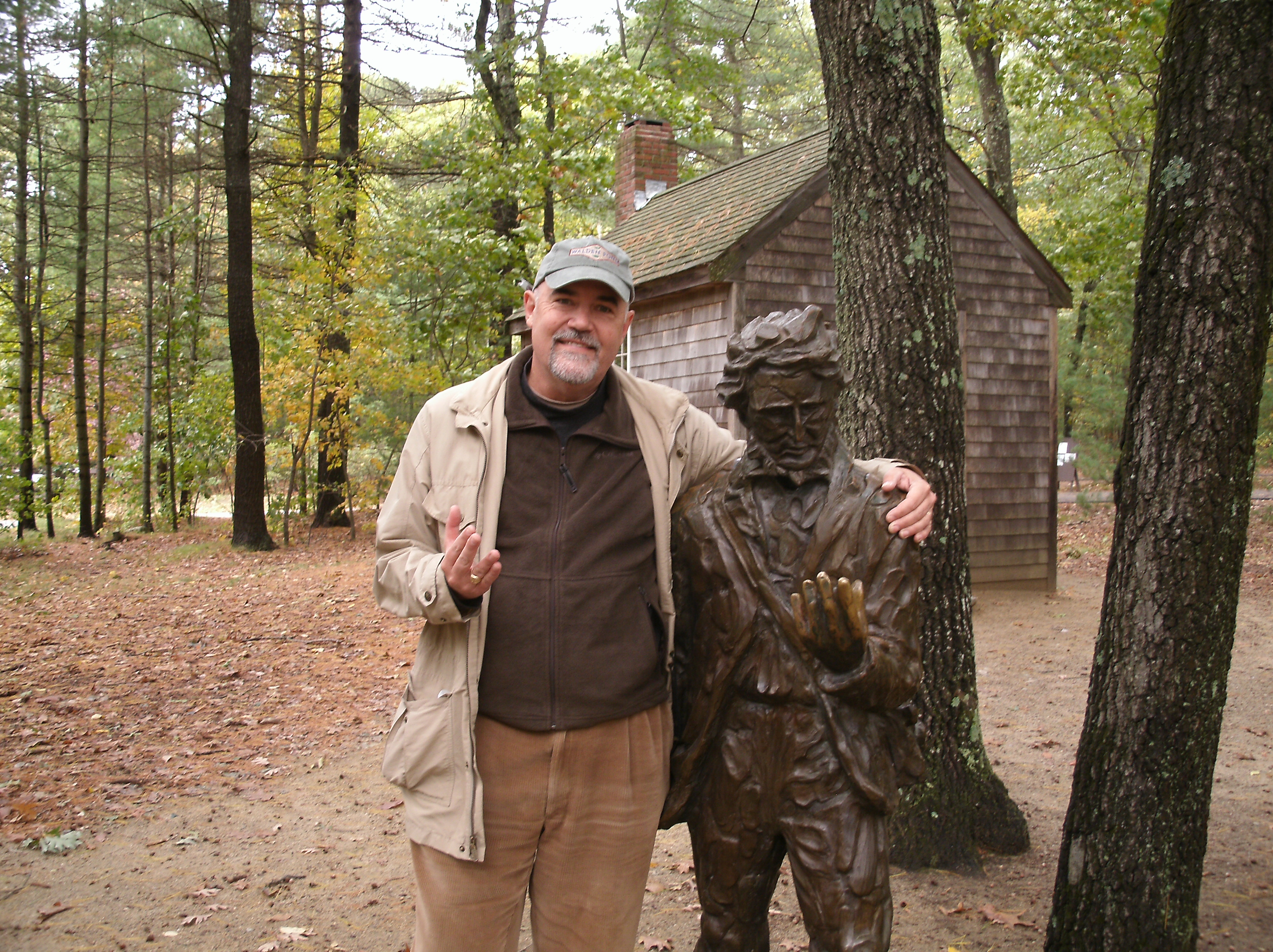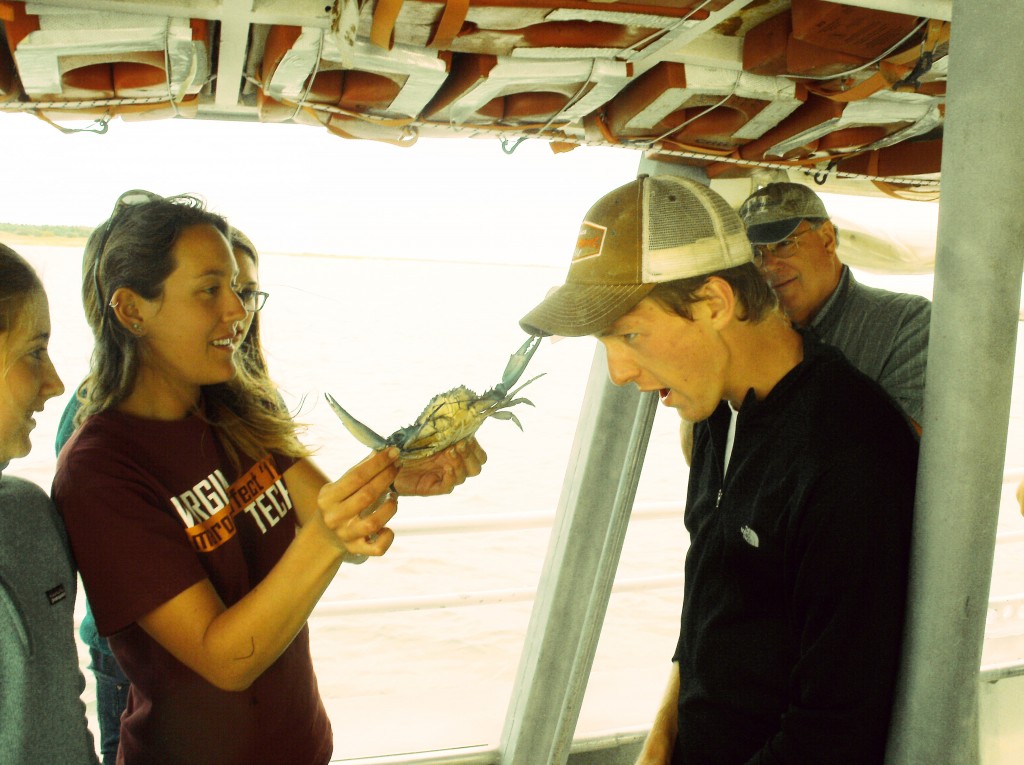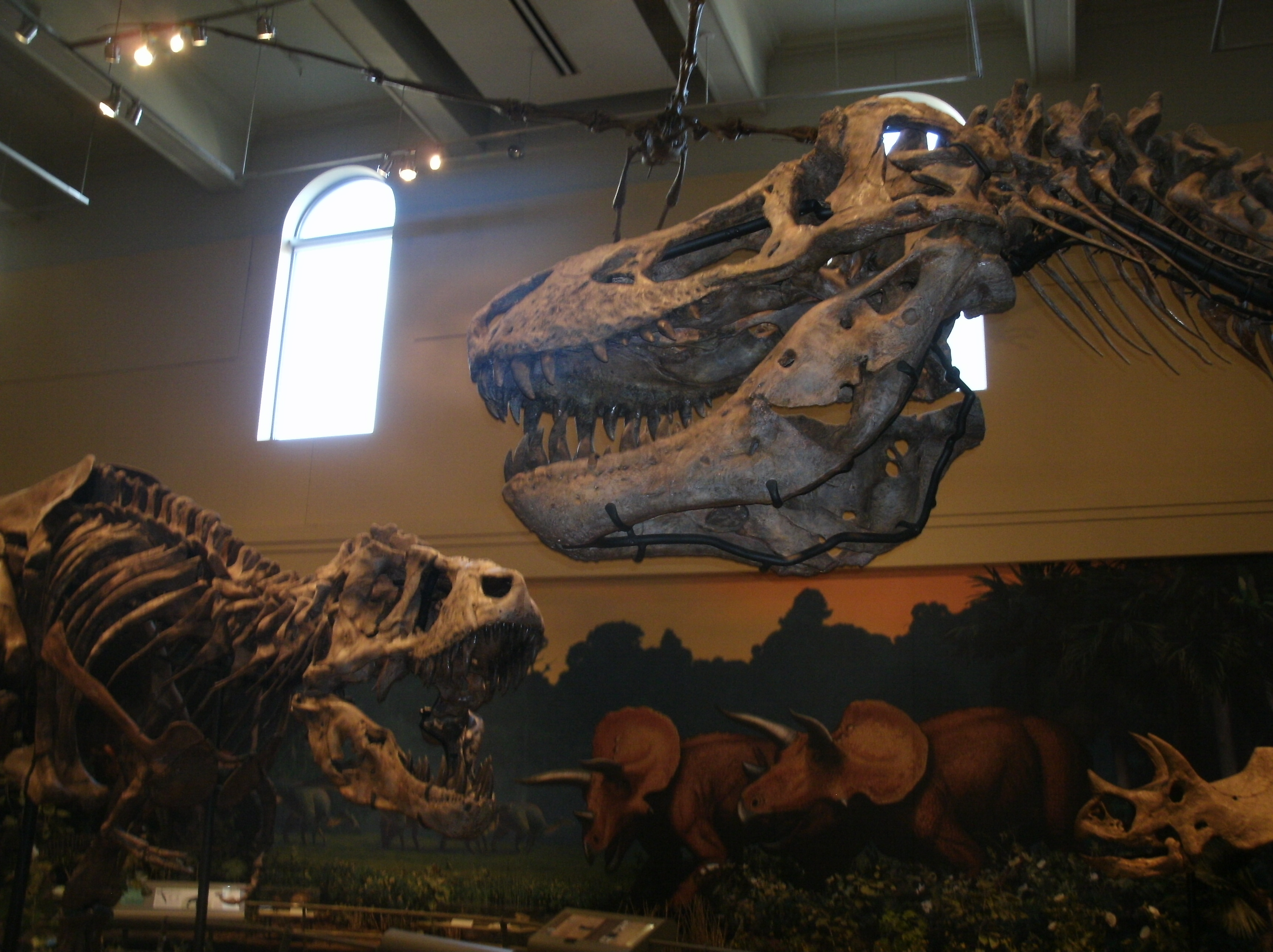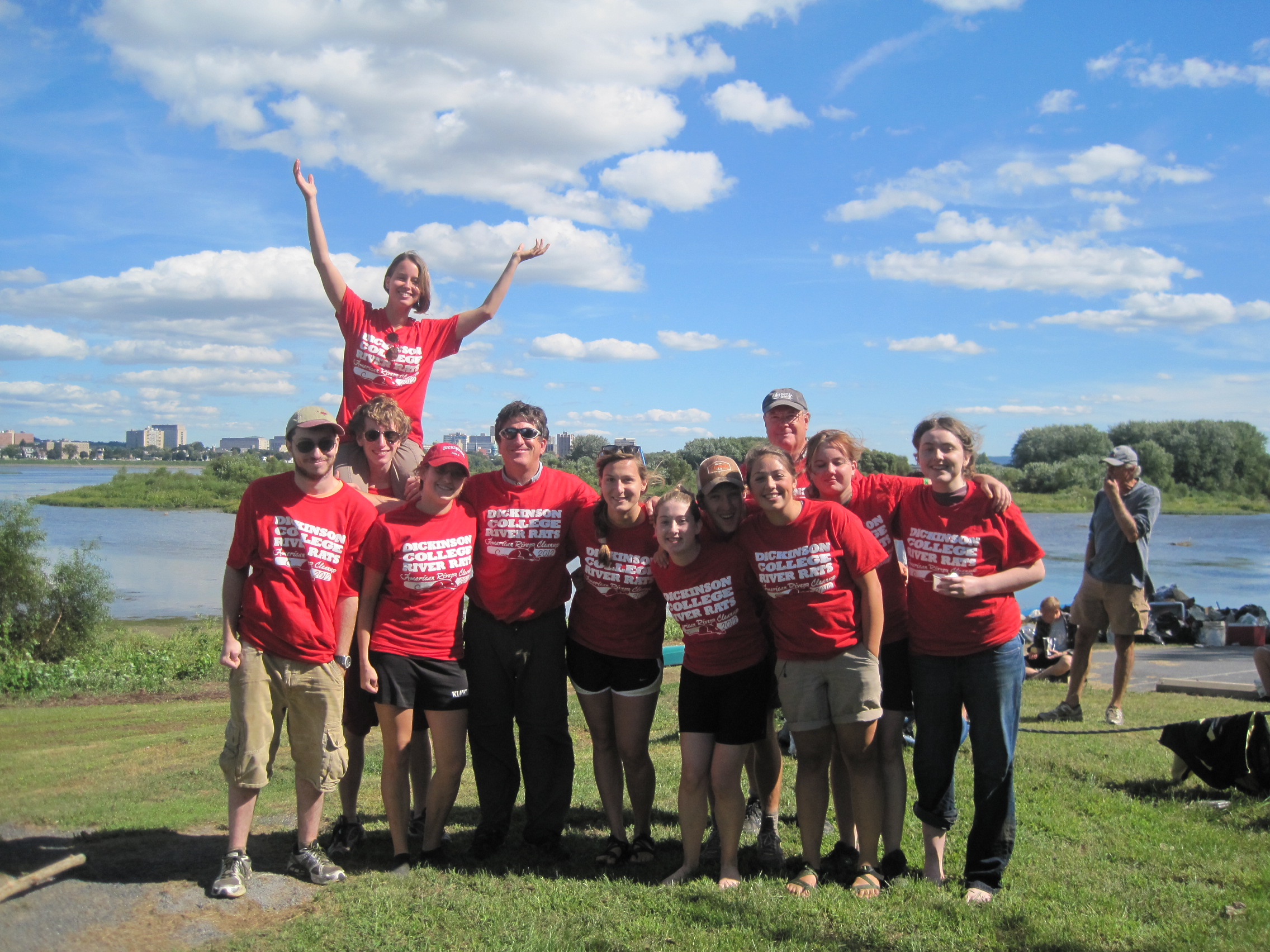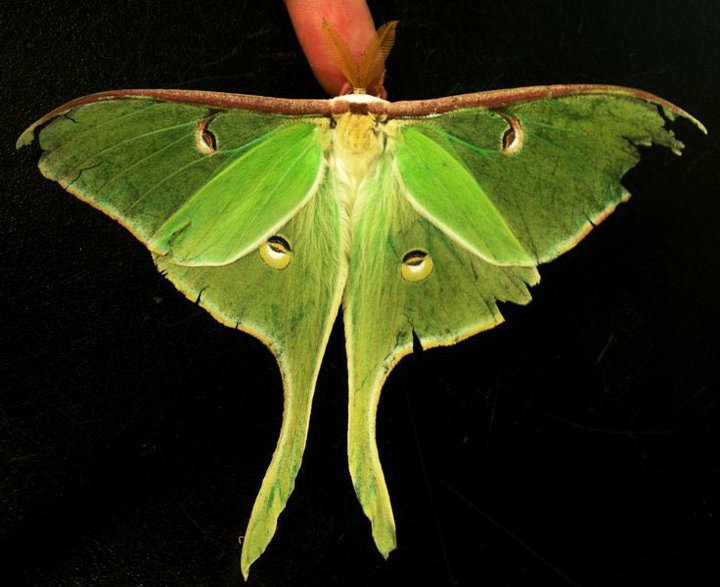ENGL 379 Thoreau, Leopold, Abbey, McKibben
__________________________________________________________
English 379 – – – – -Thoreau, Leopold, Abbey, McKibben – – – – – Nichols
__________________________________________________________
Required Texts:
Walden, or Life in the Woods, Henry David Thoreau, G. W. Zouck
The Portable Thoreau, Henry David Thoreau, Penguin
A Sand County Almanac, Aldo Leopold, Ballantine/Random House
The River of the Mother of God and Other Essays, Aldo Leopold, Wisconsin
Desert Solitaire, Edward Abbey, Touchstone/Simon Shuster
The Monkey Wrench Gang, Edward Abbey, Harper Perennial
The End of Nature, Bill McKibben, Anchor Doubleday
Eaarth: Making a Life on a Tough New Planet, Bill McKibben, Times Books
(–class handouts and assigned web readings)
Course Aims and Learning Goals:
One of the best was to study any body of literature is by way of master practitioners of the craft of writing. These writers emphasize the role played by nonhuman nature in a wide range of human activity. They also interrogate the ways that human interactions with nature (plants, animals, geology, landscapes) have affected human life and the natural world. Some of these authors have environmentalist or preservationist agendas at times; others are more interested in the philosophical and cultural implications of human understanding of and impact on the natural environment. We will set their literary works in dialogue with scientists and nature writers of the past two centuries and will examine the current importance (as well as the controversial aspects) of their wide-ranging ideas.
We will also emphasize the role played by literature in the development of our own assumptions and values. The course will focus attention on critical approaches and literary methods and will help students develop more sophisticated research skills as they move toward the senior-seminar year. We will work to answer a series of questions about the relationship between the natural world and the human beings who have defined and affected that world. Our guides will include four (4) writers and eight books (8) as well as references to other ecocritics, poets, novelists, essayists, and ourselves. We will examine the current importance (as well as the controversial aspects) of environmental ideas, and we will emphasize the role played by literature in the development of our own assumptions and values. We will hone students’ research skills (abstract, annotated bibliography, research paper) in preparation for their work in English 403 and 404
Useful Websites for Thoreau, Leopold, Abbey, McKibben:
Henry David Thoreau:
https://www.walden.org/thoreau/
Aldo Leopold:
https://www.aldoleopold.org/about/aldo-leopold/
Edward Abbey:
Bill McKibben:
Charles Darwin Online:
http://www.victorianweb.org/science/darwin/index.html
Course Requirements
Students will come to class prepared to discuss the assigned readings for each day. Discussion will form a central part of class work, and students will sign up for two (2) discussion introductions based on our weekly reading schedule. Students will be evaluated on the basis of class participation, two critical essays (8-10 pp., 12-15 pp.), and a comprehensive take-home final exam. (Your first essay will ask you to select a chapter from Walden and write your own interpretation of this chapter. Your second essay will ask you to write a research essay that explains why at least two of these authors are essential to an understanding of environmental literature.) Class participation will include written exercises and discussion introductions.
Two (2) unexcused absences will be grounds for lowering your grade in the course. The first essay will allow you to work closely with a single text; the second will require that you provide a critical context for research into works by several authors. Assignment sheets for both essays will be distributed at least three weeks before the essay due dates. Here are the departmental writing guidelines you will need for each essay:
http://www.dickinson.edu/info/20111/english/748/writing_guidelines
The class will emphasize research skills and methods useful for scholarly research and writing, both in class and through your work with the C.A.L.M. Lab workshop, if this is your first 300-level course. The comprehensive final exam will be composed entirely of essay questions.
Grading Based on These Percentages:
Class participation (10%) Two (2) Discussion Intros (10%) Essay 1 (20% Essay 2 (30%) Final Exam (30%) = 100%
Students must complete all of the assigned work in order to pass the course.
Readings for Thoreau, Leopold, Abbey, McKibben
January 23 M Our syllabus —Our syllabus as a Text—-Our class as a Dialogue
26 H Thoreau, Walden 5-99
_______________________________________________________________
30 M Walden 99-189
Feb. 2 H Walden 189-271
_______________________________________________________________
6 M Walden 271-end
9 H Portable Thoreau xi-73
_______________________________________________________________
13 M Portable Thoreau 73-163
16 H Portable Thoreau 163-190 and 469-499
______________________________________________________________
20 M Sand County Almanac 3-101
23 H Sand County Almanac 237-end
_______________________________________________________________
27 M River of the Mother ix-47 Workshop draft of ESSAY #1
March 2 H River of the Mother 47-106
_______________________________________________________________
6 M River of the Mother 123-128 Essay #1 due (interpretation of one chapter in Thoreau’s Walden)
9 H River of the Mother 181-209 and 301-320
_______________________________________________________________
13 M Spring Break
16 H Spring Break
_______________________________________________________________
20 M Desert Solitaire xi-95
23 H Desert Solitaire 95-end
_______________________________________________________________
27 M Monkey Wrench xv-98
30 H Monkey Wrench 98-205
_______________________________________________________________
April 3 M Monkey Wrench 205-311Research abstract for Essay #2 due (start of class)
6 H Monkey Wrench 311-end
_______________________________________________________________
10 M Monkey Wrench P.S. 2-25
13 H End of Nature, Part I _______________________________________________________________
17 M End of Nature, Part II Annotated Bibliography for Essay #2: (start of class )
20 H Eaarth xi-47
_______________________________________________________________
24 M Eaarth 47-213
27 H Eaarth 213 -241 __________________________________________________________
May 1 M Summary and Exam writing; identifications, short answers, essay questions)
4 H Last Class and Discussion of Take-Home Final (Class evaluation): ESSAY #2 DUE
_________________________________________________________________________________________________________________________
Friday, May 12, 5:00 p.m. Take-home due Kaufman 192 – (NO LATE EXAMS)
_______________________________________________________________
Calm Lab (only if this is your first 300-level class in the English Department)
If this is your first 300-level class in the English Department, you need to make sure that you registered for English 300, the “Critical Approaches and Literary Methods Laboratory,” colloquially known as CALM Lab. Please make sure you have registered for this lab (in the way that you regularly register for a class), enrolling in English 300.
The syllabus for that lab includes two class meetings (in the evening) and written assignments connected to these meetings. If you have questions about the CALM Lab, please contact Chris Bombaro [bombaroc@dickinson.edu] in the Waidner-Spahr Library. She is the instructor for the CALM Lab and can answer any questions you may have. I will work closely with her on your CALM lab sessions and will attend at least one of the evening classes.
Academic Honesty
The Dickinson plagiarism policy will be strictly enforced. This class adheres to the college’s Community Standards, which clearly state: “Students are expected to do their own work. Work submitted in fulfillment of academic assignments and provided on examinations is expected to be original by the student submitting it.” Please review the Community Standards document for more information. Students have failed to graduate from Dickinson on-time based on academic honesty issues in 404; please do not hesitate to ask me any questions you may have about citation, documentation, or academic honesty in relation to your thesis.
Statement on Disability Services
In compliance with the Dickinson College policy and equal access laws, I am available to discuss requests made by students with disabilities for academic accommodations. Such requests must be verified in advance by the Coordinator of Disability Services who will provide a signed copy of an accommodation letter, which must be presented to me prior to any accommodations being offered. Requests for academic accommodations should be made during the first three weeks of the semester (except for unusual circumstances) so that timely and appropriate arrangements can be made.
Students requesting accommodations are required to register with Disability Services, located in Academic Advising, first floor of Biddle House. Please contact Marni Jones, Coordinator of Disability Services (at ext. 1080 or jonesmar@dickinson.edu ) to verify their eligibility for reasonable and appropriate accommodations.
Questions to Consider
Are human beings just the result of random evolutionary processes over time? Is that all they are?
“Be fruitful and multiply.”–Is that a good idea? Is that a waste? Does evolution necessarily conflict with the religious teachings of Christianity? Can the two viewpoints–religious and scientific–be reconciled?
Why does Christianity say that God cannot be a part of the natural world? What problem/s does that pose for literature?
What is the connection between environmentalism and planetary climate change?
Why has thinking about the nonhuman world had such a powerful impact on poets and novelists over the past 150 years?
When do poets and scientists think in similar ways? When do they think in different ways?
Is AIDS natural? Is spinal bifida? Is death? Is nature “good”? Is anything “natural” ever “evil”? _______________________________________________________________
_______________________________________________________________
What Writers Have Said About the Nonhuman World
“In looking at the objects of Nature while I am thinking, as at yonder moon dim-gleaming through the dewy window-pane, I seem rather to be seeking, as it were asking for, a symbolical language for something within me that already and for ever exists, than observing anything new. Even when the latter is the case, yet still I have always an obscure feeling as if that new phenomena were a dim awakening of a forgotten or hidden truth of my inner nature.” (1805)–Coleridge, Anima Poetae
“A Poet is the most unpoetical of any thing in existence; because he has no Identity–he is continually in for–and filling some other Body–The Sun, the Moon, the Sea and Men and Women who are creatures of impulse are poetical and have about them an unchangeable attribute–the poet has none; no identity–” Keats, Letters
“How much virtue there is in simply seeing! . . . We are as much as we see . . . Every child begins the world again. . . I saw this familiar–too familiar–fact at a different angle, and I was charmed and haunted by it . . . Only what we have touched and worn is trivial,–our scurf, repetition, tradition, conformity. To perceive freshly, with fresh senses, is to be inspired . . . The age of miracles is each moment thus returned.” –Thoreau, Works
“In a Romantic poem the realm of the ideal is always observed as precarious–liable to vanish or move beyond one’s reach at any time. Central Romantic poems like “Ode to a Nightingale” or “La Belle Dame Sans Merci” typify this situation in the Romantic poem, which characteristically haunts, as Geoffrey Hartman has observed, borderlands and liminal territories. These are Romantic places because they locate areas of contradiction, conflict, and problematic alternatives.” –Jerome McGann, The –Jerome McGann, The Romantic Ideology
What Critics Have Said About Nature
“Ecocriticism can be further characterized by distinguishing it from other critical approaches. Literary theory, in general, examines the relations between writers, texts, and the world. In most literary theory “the world” is synonymous with society–the social sphere. Ecocriticism expands the notion of “the world” to include the entire ecosphere. If we agree with Barry Commoner’s first law of ecology, “Everything is connected to everything else,” we must conclude that literature does not float above the material world in some aesthetic ether, but, rather, plays a part in an immensely complex global system, in which energy, matter, and ideas interact.” –Glotfelty and Fromm
Ashton Nichols: Kaufman 192, Class meetings: 3:00 M H, Office Hours: M H 11-1:30 p.m. and by appt., Classroom: K 178
